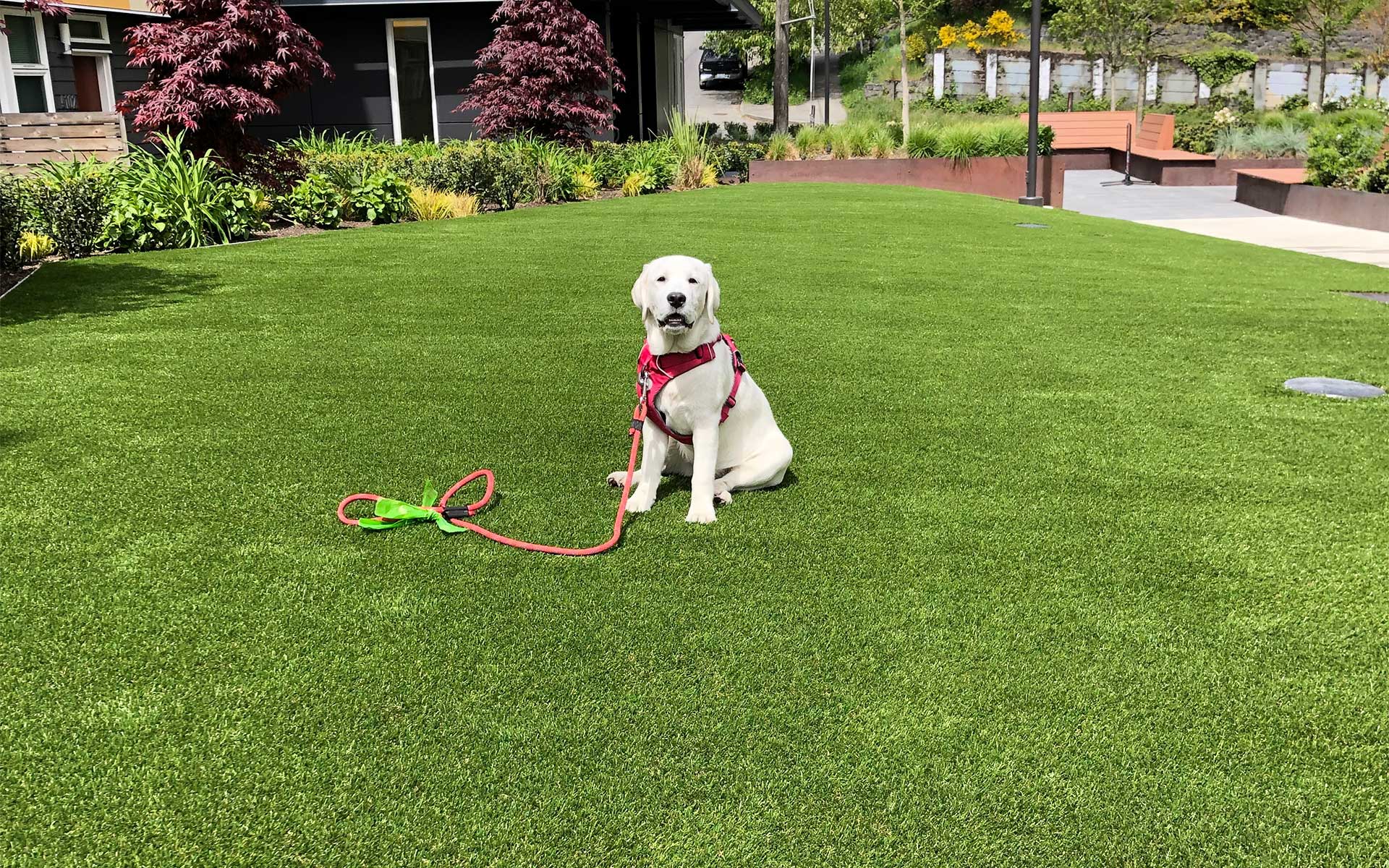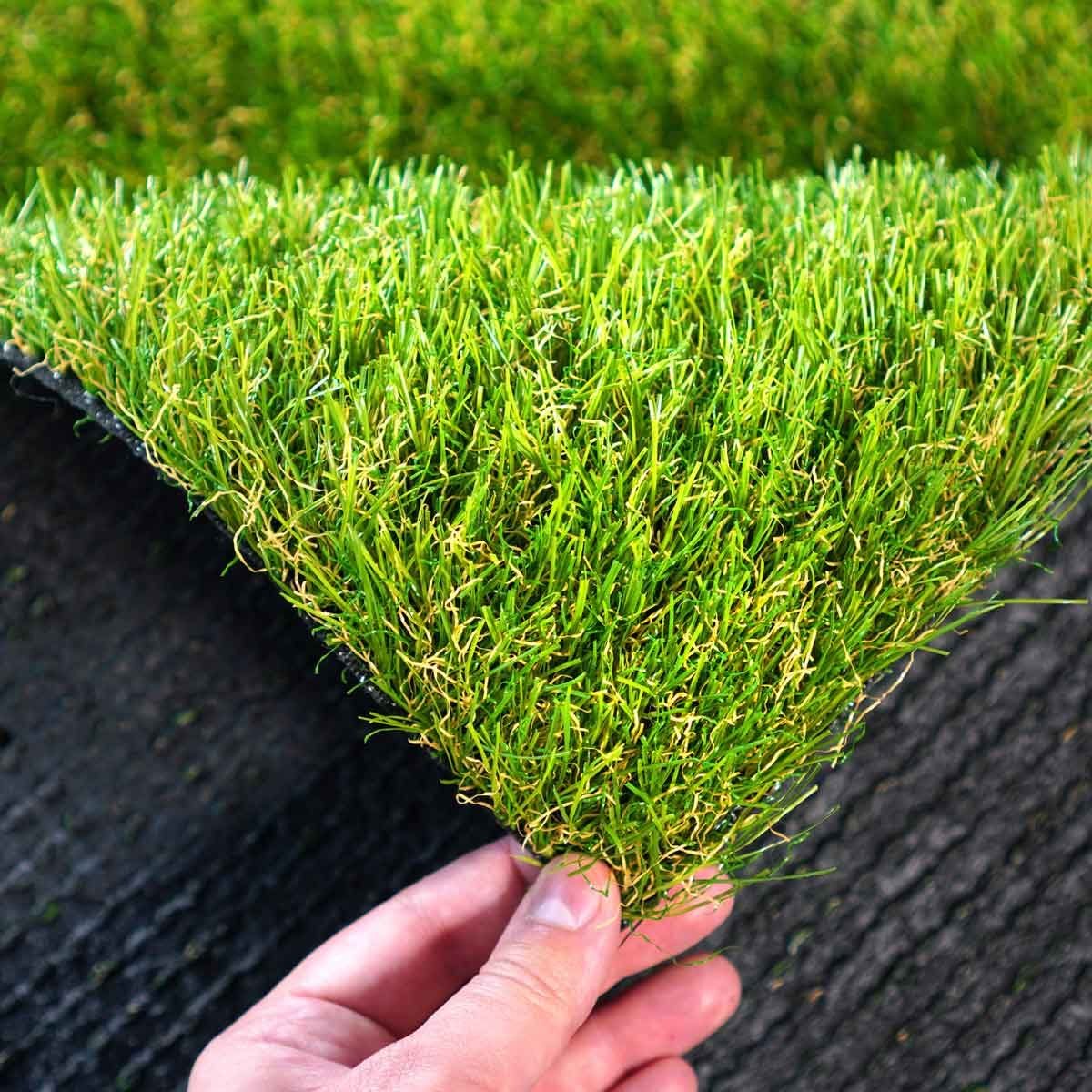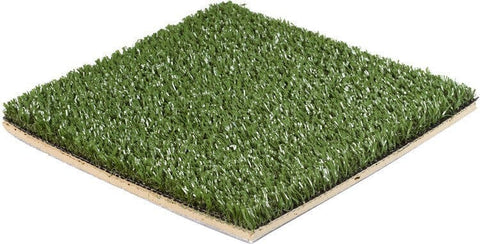Delve Into the Environmental Advantages of Opting for Artificial Turf Solutions
The fostering of synthetic grass services presents an engaging possibility to attend to pressing ecological challenges. By considerably reducing water use and reducing the application of hazardous chemicals, these alternatives not just promote lasting landscaping but additionally secure local ecological communities. The lower carbon impact associated with reduced upkeep activities contributes to a more lasting approach to land management. Nevertheless, the implications of these benefits extend past simple preservation efforts, raising inquiries regarding their long-term impact on environment conservation and overall environmental equilibrium. Discovering these measurements discloses a complex interplay worth thinking about.
Water Conservation Perks
One of the most considerable benefits of fabricated grass is its capability to save water. Standard lawn lawns require substantial watering, specifically in locations vulnerable to drought or water restrictions. In contrast, fabricated turf does not require watering, significantly reducing the overall demand for water resources. This attribute is especially valuable in deserts where water scarcity is a pushing problem.
By getting rid of the demand for regular watering, synthetic grass adds to sustainable landscape techniques and assists reduce the ecological effect of too much water intake. Moreover, the conservation of water reaches the reduction of runoff, which can cause soil erosion and river contamination.
In addition, the setup of synthetic turf allows communities and property owners to designate water sources much more efficiently, concentrating on essential uses such as drinking water and farming. The shift in the direction of synthetic grass not just promotes liable water usage yet likewise aligns with broader environmental goals targeted at maintaining natural deposits.
As communities progressively focus on sustainability, the water preservation benefits of artificial turf present a compelling situation for its fostering in industrial and household landscaping jobs.
Decreased Chemical Usage
The transition to man-made grass substantially reduces the dependence on chemical therapies generally made use of in all-natural lawn upkeep. Typical lawn administration commonly entails the application of chemicals, plant foods, and herbicides to promote development and control parasites. These chemicals can position risks to human wellness, neighborhood wildlife, and the setting, adding to soil and water contamination.
In comparison, man-made grass eliminates the demand for these dangerous compounds. By reducing the launch of synthetic substances right into the ecological community, man-made lawn promotes much healthier dirt and water systems.
Furthermore, the absence of chemical drainage related to man-made lawn installations assists protect regional rivers from pollution, supporting water life and keeping biodiversity. Arizona artificial turf. As neighborhoods significantly focus on sustainable practices, choosing man-made turf offers a practical remedy that aligns with environmental preservation goals. With this change, home proprietors can appreciate rich environment-friendly rooms without endangering ecological health and wellness, leading the way for an extra lasting future
Reduced Carbon Footprint

Furthermore, the setup of man-made turf can result in substantial water conservation. Natural grass need significant quantities of water for watering, which not just contributes to the carbon footprint connected with water removal and treatment yet likewise pressures neighborhood water sources. In comparison, man-made turf needs minimal maintenance, requiring no watering, therefore considerably minimizing water usage and its associated energy prices.
Additionally, the durability of synthetic grass contributes to its lower carbon influence. With a life-span of approximately 15 years or even more, the requirement for regular substitutes is reduced, leading Learn More to less waste and reduced energy usage in manufacturing and taking care of typical yard choices. Generally, synthetic grass provides a sustainable option for ecologically mindful landscaping.
Environment Preservation
Habitat preservation is a critical factor to consider in the dispute over landscaping choices, particularly when contrasting man-made turf More Bonuses to all-natural yard. Natural grass yards commonly need considerable upkeep, including the usage of herbicides, chemicals, and fertilizers, which can negatively impact neighborhood ecological communities. These chemicals can leach right into the soil and waterways, harming native flora and animals and interrupting local habitats.
In comparison, synthetic grass provides a possibility to decrease the eco-friendly footprint of landscape design. By opting for artificial turf, house owners can minimize the disturbance of natural habitats linked with traditional yard treatment practices. Synthetic grass removes the need for unsafe chemicals, thereby securing neighboring wildlife and keeping the integrity of surrounding ecological communities. The installment of artificial grass can lead to the conversion of previous turf locations right into even more biodiverse landscapes, such as pollinator yards or native plant locations, which can support regional wild animals.
Ultimately, the shift to synthetic grass not only saves water and decreases upkeep efforts however also cultivates an extra unified connection between human tasks and the natural environment, promoting environment conservation in the process.
Long-Term Sustainability
Long-lasting sustainability is a vital variable in examining the advantages of artificial grass over standard lawn lawns. Among the most significant advantages of synthetic grass is its durability; it can last as much as 15-20 years with minimal maintenance, whereas all-natural lawn requires regular reseeding and replacement. This long life minimizes the need for consistent resources, such as water, fertilizers, and chemicals, which are necessary for maintaining a healthy and balanced grass yard.
Furthermore, fabricated lawn adds to a reduction in carbon exhausts connected with grass care devices. Typical yards often need gas-powered mowers, leaners, and blowers, all of which add to air pollution. Arizona turf. In contrast, man-made grass eliminates the demand for such equipment, promoting a cleaner atmosphere
Additionally, the production of synthetic grass increasingly makes use of recycled materials, boosting its sustainability account. As producers embrace eco-friendly techniques, the environmental footprint of synthetic grass remains to decrease.

Verdict
The adoption of synthetic grass services offers considerable environmental advantages, consisting of substantial water preservation, reduced dependence on damaging chemicals, and a lower carbon footprint. Fabricated grass help in preserving natural environments by lessening land disruption and promoting long-lasting sustainability via the usage of durable materials. Jointly, these elements emphasize the capacity of synthetic grass to contribute favorably to ecological wellness and provide a feasible choice to conventional landscaping methods in a significantly resource-conscious world.
In contrast, man-made lawn does not require watering, considerably decreasing the general need for water sources. By minimizing the release of artificial substances right into the community, synthetic grass promotes much healthier soil and water systems.
Furthermore, the installment of synthetic i loved this grass can result in significant water conservation. In contrast, synthetic grass needs marginal upkeep, calling for no watering, thereby considerably decreasing water usage and its linked power expenses.
